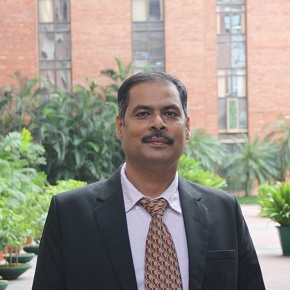Dr. Subhasis Das, an environmental microbiologist has been with TERI since 2013 and is currently a Fellow and Area Convenor in the Environmental and Industrial Biotechnology division. His research areas of interest include the development and application of environmental biotechnological techniques for organic pollution bioremediation and degraded land restoration, smart agriculture including control release fertiliser applications and plant growth promoting rhizobacterial diversity. Current research focuses on using microbiomes to predict the effectiveness of bioremediation, and his lab has tested and reported on a number of microbial and microbiome techniques. He has demonstrated bio-based technologies into to the field condition from laboratory setup. He has several ongoing projects from government agencies and corporates. He has several bilateral and multilateral national and international collaborations in the area of Environmental Microbiology. He has published peer reviewed research articles in high impact journals, book chapters, and technical reports and edited two books with international publishers. Furthermore, he is a member of a number of professional associations, including the Association of Microbiologists of India (AMI); Indian Science Congress Association (ISCA); Asia Pacific Chemical Biological and Environmental Engineering Society (APCBEES) and American Society for Microbiology (ASM). His research and expertise has led to the new technology to manage and remediate polluted environment and implementation of the policy directives for government. He was significantly contributed as a Bioremediation Specialist and Quality Control Engineer in an international bioremediation project ‘’Remediation of contaminated features SEK1’’ awarded to TERI in Kuwait funded by Kuwait Oil Company.
After completing an M.Sc. in Microbiology from Vidyasagar University and an M.Phil. in Environmental Science from the University of Kalyani, Dr. Das was awarded a Ph.D. in Microbiology from the ICAR-Central Rice Research Institute, Cuttack, in 2014. He was guest scientist at Helmholtz Centre for Environmental Research-UFZ Leipzig in Germany during 2015-2018.

